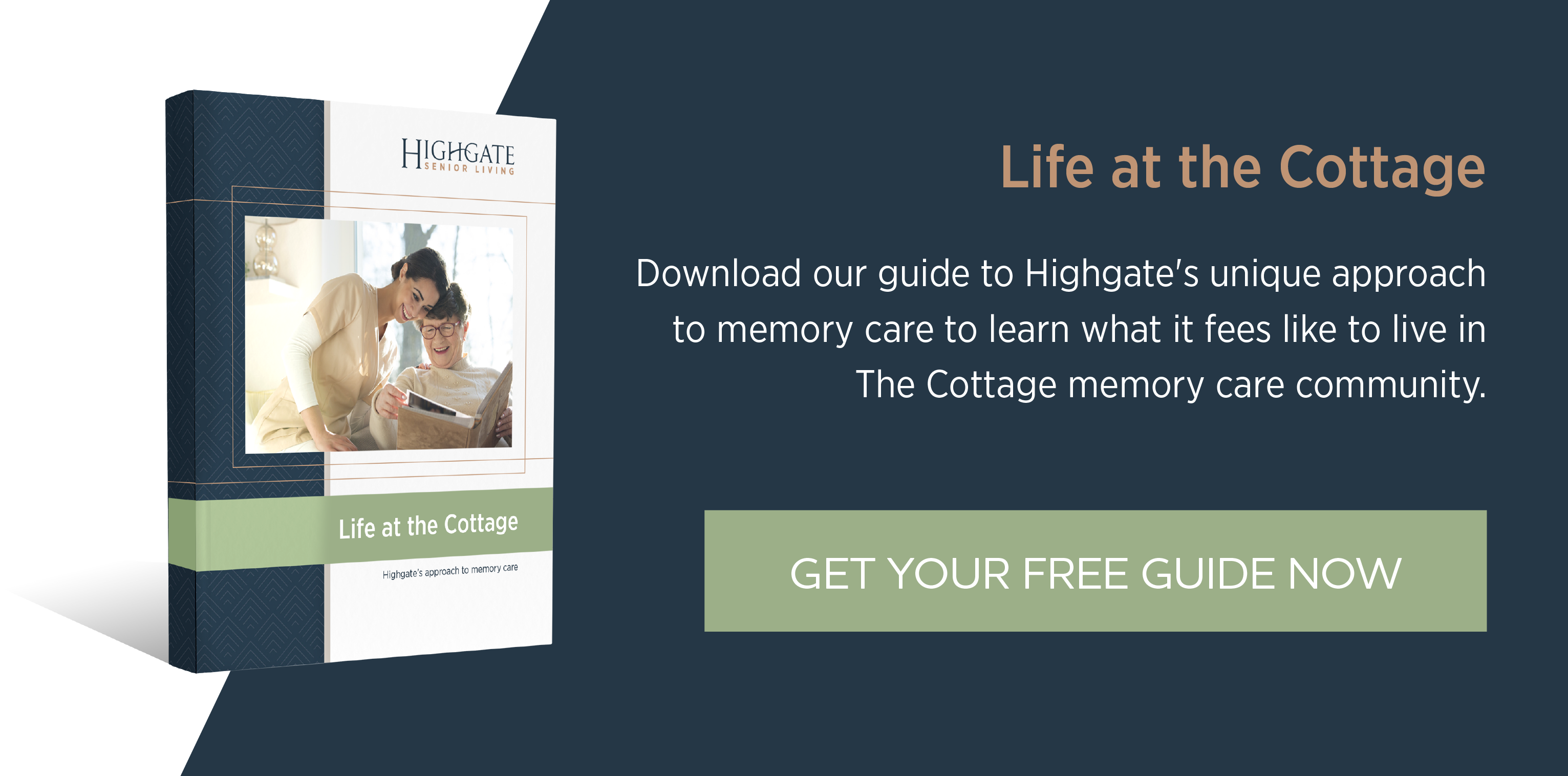For professionals working in memory care, there isn’t a lot of good news when it comes to finding a cure for dementia. However, we are finding new and better approaches to help individuals cope with cognitive impairment and live out their days in happy and fulfilling ways.
At Highgate our mission is to help every resident, regardless of age or ailment, live a life of purpose. So how do we do this in memory care when we are dealing with the sad, slow death of brain functions?
Traditionally our approach has been a holistic one.
- Getting to know each person as a whole;
- Making sure the medications they take are right and necessary;
- Finding alternative ways to boost memory and health, such as:
- exercise
- proper eating
- hydration
- aromatherapy
- spa baths and massages to relax and soothe
But our knowledge of the disease is growing, and with this greater understanding comes new thinking about ways to interact with, respond to, and support those with dementia. One of the prominent thought leaders in this area is an occupational therapist named Teepa Snow, who calls her philosophy “The Positive Approach to Care.” It’s an approach very much in line with our core mission, and one we are adopting at Highgate.
The basic idea behind The Positive Approach to Care, or PAC, is for care partners to focus not on what’s lost, but on what’s left. To concentrate on what can be done, rather than what can’t.
With dementia, the brain is changing frequently, which presents a constant challenge for all involved. To make matters more complicated, there are many forms of dementia, and each individual experience is different. Some people are pleasantly confused while others express their frustration and anger by shouting or striking out. According to Ms. Snow, through heightened sensitivity, appropriate care, meaningful activities and exposure to music, living with dementia can be a much more positive experience. The key is to respect the person living with dementia as the productive adult that they are.
She encourages all care partners to respond to a person's change in cognition and abilities in a way that is respectful, not hurtful or offensive. To understand that, with practice, common "reactions" to the person with dementia can become thoughtful "responses" that improve quality of life for everyone involved. To recognize that the person with dementia is doing the best they can and if something isn't working, it's the responsibility of the care partner to change their approach toward the person living with dementia as well as to discover what can be done differently to address the challenging situation.
We at Highgate encourage our care partners to always respect the wishes of our residents and to never touch someone without their permission. We don’t stop residents from performing tasks they are having difficulty doing, but rather suggest an easier or different way of doing it. Together, our team members find common talking points and practices to help each other best serve our residents’ needs and desires.
In essence, we at Highgate do everything in our power to help those living with dementia to make the most of what they have left – physically, mentally and emotionally – so that we can support them, along with all our assisted living residents, in living each day to the fullest.







